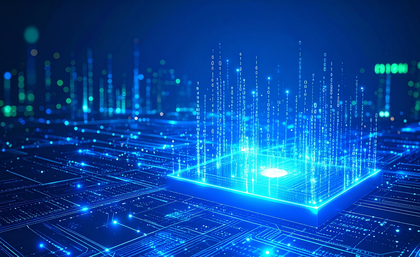AI to make more ‘significant discoveries’ by 2028 and beyond, says OpenAI
By IANS | Updated: November 9, 2025 10:45 IST2025-11-09T10:44:07+5:302025-11-09T10:45:14+5:30
New Delhi, Nov 9 In 2026, AI can make very small discoveries but in 2028 and beyond, OpenAI ...

AI to make more ‘significant discoveries’ by 2028 and beyond, says OpenAI
New Delhi, Nov 9 In 2026, AI can make very small discoveries but in 2028 and beyond, OpenAI is confident that “we will have systems that can make more significant discoveries”.
According to the US-based AI company, most of the world still thinks about AI as chatbots and better search.
“But today, we have systems that can outperform the smartest humans at some of our most challenging intellectual competitions. Although AI systems are still spikey and face serious weaknesses, systems that can solve such hard problems seem more like 80 per cent of the way to an AI researcher than 20 per cent of the way,” according to OpenAI.
The gap between how most people are using AI and what AI is presently capable of is immense.
Also, AI systems that can discover new knowledge — either autonomously, or by making people more effective — are likely to have a significant impact on the world.
According to OpenAI, in just a few years, AI has gone from only being able to do tasks (in the realm of software engineering specifically) that a person can do in a few seconds to tasks that take a person more than an hour.
“We expect to have systems that can do tasks that take a person days or weeks soon; we do not know how to think about systems that can do tasks that would take a person centuries. At the same time, the cost per unit of a given level of intelligence has fallen steeply; 40x per year is a reasonable estimate over the last few years,” it mentioned in a blog post.
Soon, AI systems will help people understand their health, accelerate progress in fields like materials science, drug development, and climate modelling, and expand access to personalised education for students around the world.
Demonstrating these kinds of tangible benefits helps build a shared vision of a world where AI can make life better, not just more efficient.
“Although the potential upsides are enormous, we treat the risks of superintelligent systems as potentially catastrophic and believe that empirically studying safety and alignment can help global decisions, like whether the whole field should slow development to more carefully study these systems as we get closer to systems capable of recursive self-improvement,” the company noted.
Obviously, no one should deploy super-intelligent systems without being able to robustly align and control them, and this requires more technical work, it added.
Disclaimer: This post has been auto-published from an agency feed without any modifications to the text and has not been reviewed by an editor
Open in app